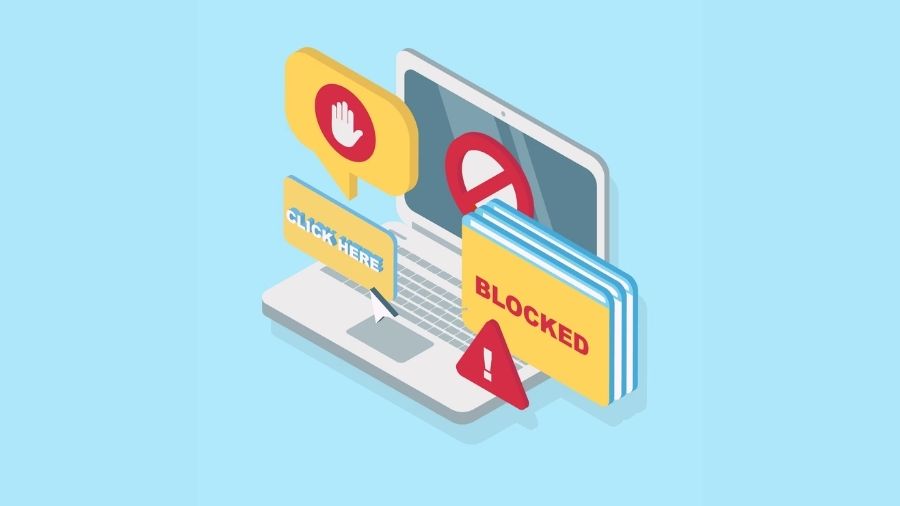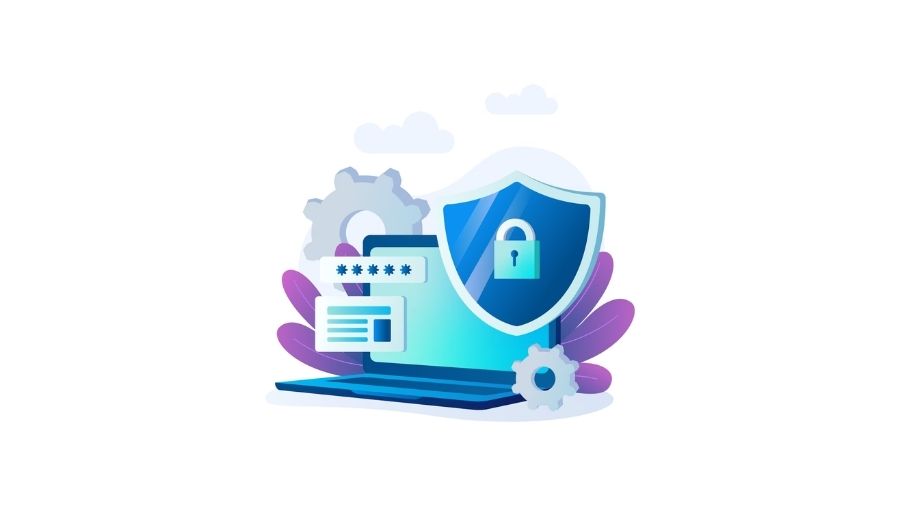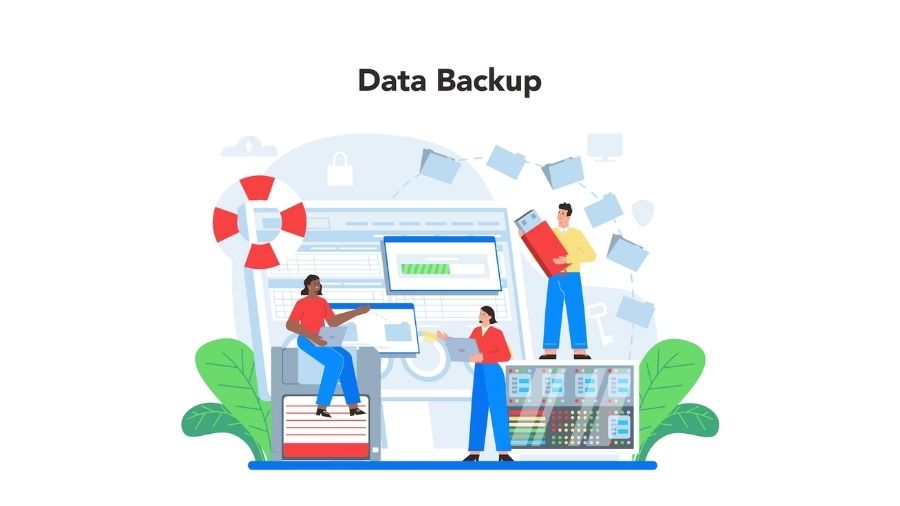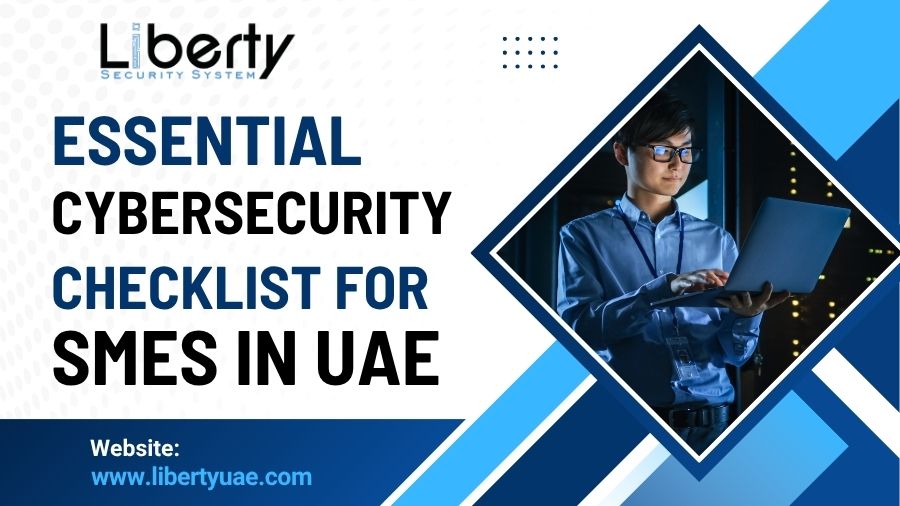You are aware that technology, including emails, cloud storage, payment systems, and more, are essential to the operation of your Small or Medium Enterprise (SME) in the United Arab Emirates. Although this reliance on technology is great for growth, it also makes you a target for cybercriminals.
“We’re too small to be attacked” is a common belief among SME owners. It’s a myth. Due to their lack of security, small businesses are frequently easier targets than large corporations, making them the ideal target for hackers seeking a quick win.
A straightforward, non-technical cybersecurity checklist for SMEs is provided in this extensive guide to help you safeguard your company. We will explain the most crucial procedures to protect your data, clients, and livelihood, so don’t worry about technical jargon.
Table of Contents
Cybersecurity Checklist – The Human Firewall – Training Your Team

People are frequently a company’s greatest security vulnerability. Actually, the most common reason for security breaches is human error. Your employees are your first and most important line of defense; they are more than just employees.
The Best Cybersecurity Checklist For Your Company Is To Invest In Its Awareness
1. Spotting Phishing and Scams
Scammers use extremely realistic-looking phishing emails, often posing as banks, suppliers, or even senior coworkers. Their objective is to deceive employees into clicking on a malicious link or divulging sensitive information, including login passwords.
- Easy Steps to Take – Teach all employees to carefully examine the sender’s email address and search for any minor mistakes. Importantly, teach them the rule: STOP, THINK, and CALL the purported sender using a known, reliable phone number (not the number listed in the suspicious email) to make sure the request is authentic if it asks for your password or an urgent money transfer.
2. Public Wi-Fi Warning
It is extremely dangerous to use free public Wi-Fi for work-related purposes in locations like hotels, airports, and cafés. These networks are frequently unprotected, which makes it simple for a hacker to “listen in” on the connection and take confidential information or login credentials.
- Easy Action Plan – Prevent employees from using public Wi-Fi to access vital systems or sensitive work data. A secure VPN (Virtual Private Network), which encrypts the connection and protects the data from prying eyes, must be used if remote work is required.
3. Knowing the Rules
Your employees cannot adhere to the proper security protocols if they are unaware of their responsibilities. Rules must be clear and easy to understand.
- Easy Action Plan – Draft an uncomplicated, understandable cybersecurity policy. This one-page document should contain detailed instructions on how to use company devices, the internet, email, and how to handle sensitive data.
Strong Locks and Keys – Access Control

The most valuable assets of your company are stored in the vaults of your accounts, gadgets, and digital systems. You need the strongest “locks” to keep people out in order to protect them. This is a fundamental element of successful Cyber Security Solutions in Dubai.
1. Using Strong Passwords
An automated hacking program can quickly crack a weak or simple password, granting hackers instant access to your systems.
- Easy Action Plan – Make it mandatory for passwords to be strong, consisting of a minimum of 12 characters and a combination of capital and lowercase letters, digits, and symbols. Encourage employees to use a trustworthy password manager to generate and safely store distinct passwords for each application in order to assist them in managing dozens of complicated passwords.
2. Enabling Multi-Factor Authentication (MFA)
There isn’t a more effective security measure on the market right now. An employee cannot log in without the second layer of verification, even if they are successful in stealing their password.
- Simple Action Plan – Enable multi-factor authentication (MFA) for all important accounts, including cloud storage, online banking, email (such as Gmail or Microsoft 365), and any sensitive business applications. MFA entails using a standard password in addition to a time-sensitive code that is texted or sent to a phone app.
3. Limiting Access (Principle of Least Privilege)
Not every worker must have access to every file. Limiting an employee’s permissions reduces the possible harm a hacker could cause if their account is compromised.
- Easy Action Plan – Apply the Least Privilege Principle. Give workers only the access they absolutely require to carry out their designated job duties. Additionally, establish a practice of promptly deactivating former employees’ accounts and routinely assessing current employees’ access privileges, particularly when they switch positions.
The Digital Guard Dog – Security Software

Your network and PCs need strong digital security, just like you lock the doors to your office. These security tools are crucial IT Solutions for Business Users in Dubai.
1. Installing Antivirus/Endpoint Protection
This program is made to continuously check your files, keep an eye on network activity, and thwart known threats like malware, viruses, and debilitating ransomware before they have a chance to launch an attack.
- Simple Action Plan – Install a trustworthy, commercial-grade antivirus program on all company computers (laptops, desktops, and servers), preferably an Endpoint Detection and Response (EDR) program. Free consumer software doesn’t offer the security a business environment needs.
2. Keeping Everything Updated (Patching)
Companies like Microsoft, Apple, and Adobe release software updates that mainly address important “security holes” or “vulnerabilities” that hackers actively seek out and take advantage of, rather than merely adding new features.
- Easy Action Plan – Turn on automatic updates for all of your essential business software and operating system (Mac or Windows). Because a delayed update indicates a persistent vulnerability, encourage staff not to put off those frequent “Restart to Update” messages.
3. Setting Up a Firewall
By continuously observing all incoming and outgoing traffic and blocking anything that appears unauthorized or suspicious from the internet, a firewall serves as your network’s virtual gatekeeper.
- Easy Action Plan – Verify that a professional-grade firewall is properly configured on your company’s router or network system. Many trustworthy IT Services in UAE providers can install and maintain a cutting-edge firewall solution for your office network, offering 24/7 security, for added peace of mind.
The Safety Net – Data Backup and Recovery

Even with your best efforts, there is always a chance of a devastating cyberattack, especially ransomware, in which hackers encrypt your files and demand payment. You must have a plan in place to get back to work right away if your operational data is locked or lost.
1. Backing Up Everything Important
Restoring from a recent, clean backup is the only way to swiftly recover from a significant data loss event without having to pay a criminal ransom.
- Simple Action Plan – Put in place a reliable, automatic, daily backup system for all important company data, such as contracts, accounting records, customer information, and key documents.
2. Using the 3-2-1 Rule
It’s dangerous to rely just on one backup technique. You lose everything if the same attack or malfunction that wipes out your primary data also affects your only backup copy (for example, if they are both networked).
- Easy Action Plan – Use the 3-2-1 industry standard. The rule is to keep three copies of your data, one on your primary server, one on a cloud service, and one offsite, completely unconnected to your live network. This guarantees that in the event of a local catastrophe or network-wide attack, at least one copy will survive.
3. Testing Your Backups
A backup system is useless if it malfunctions when you need it most. You need to be sure that your safety net is effective.
- Easy Action Plan – At least once every three months, test your ability to restore a file or folder from your backup system. The process’s proper operation and the usability of the data being backed up are confirmed by this regular check.
Getting Expert Help – IT Support in Dubai
Your security requirements increase in complexity as your company expands. It’s acceptable if you don’t have a dedicated IT or security staff member. Managed IT support in Dubai can help with this.
1. Managed Security Services – You can employ a local professional to oversee your security rather than doing all of the aforementioned duties yourself. They offer Cyber Security Solutions in the UAE that include round-the-clock monitoring, firewall and anti-malware management, and ensuring that all of your systems are patched on a regular basis. For SMEs, this is frequently the most dependable and affordable option.
2. Frequent Audits – To identify the weak points before a real criminal does, an IT partner can conduct a vulnerability assessment, which is a friendly “hack” on your own systems.
3. Compliance – Strict data laws apply in the United Arab Emirates. A knowledgeable IT provider can assist in making sure your company complies with all local laws, shielding you from penalties and legal issues.
Proactive cybersecurity has become essential in the UAE’s fast-paced, digitally-focused environment. With Liberty UAE, you can drastically reduce your risk and guarantee the stability and success of your company by using this easy, step-by-step cybersecurity checklist for SMEs.
Also Read: Cybersecurity vs Information Security






